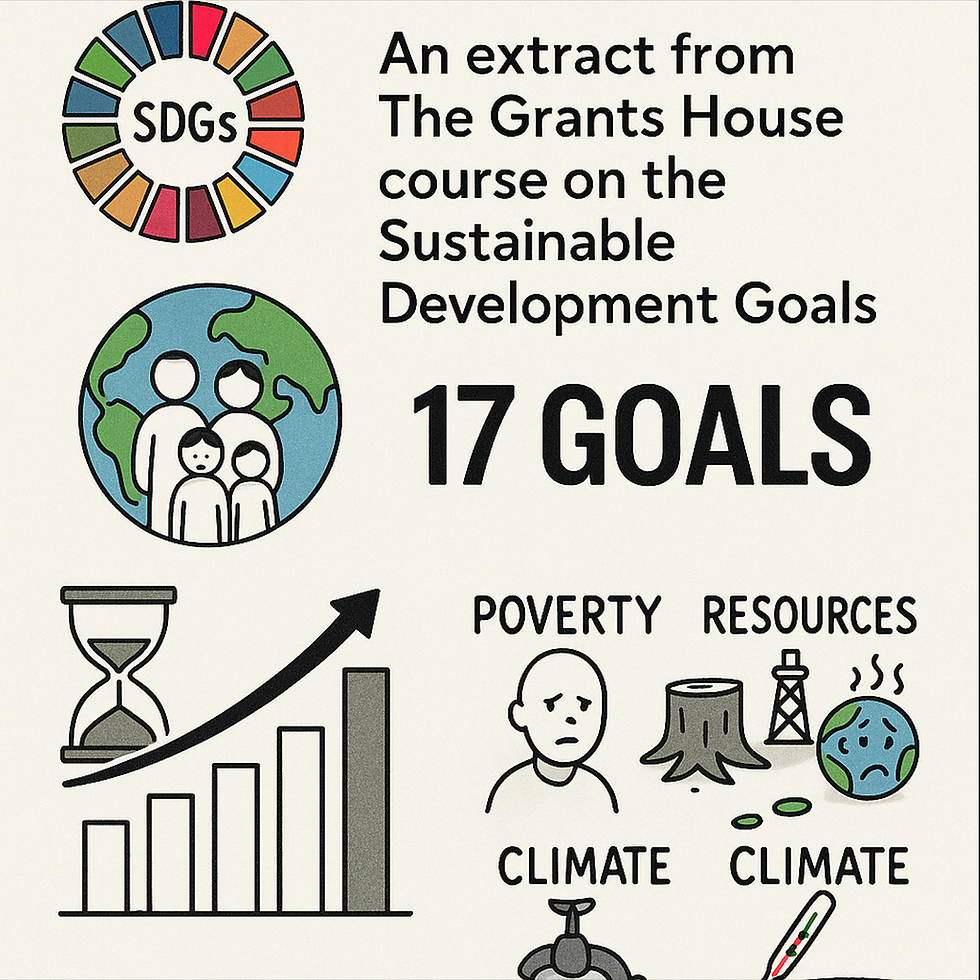The role of the World Bank, and possible funding mechanisms
- Philip

- Feb 6, 2024
- 3 min read
The World Bank plays a pivotal role in global development, functioning as a cornerstone institution fostering economic progress and addressing critical issues.
At its core, the World Bank is a financial institution providing loans and grants to the governments of poorer countries. These funds are channeled into diverse projects spanning infrastructure, education, healthcare, and environmental sustainability. The institution's primary goal is poverty reduction, aiming to uplift communities and enhance living standards.
One key functionality of the World Bank is its emphasis on long-term development. Through meticulous project planning and implementation, the institution seeks to create sustainable solutions that extend far beyond immediate aid. This approach ensures that the benefits of World Bank initiatives endure, contributing to lasting positive change.
The World Bank's utility extends beyond financial support. As Albert Zeufack, the World Bank’s Chief Economist for AfricaIt, stated it should serve as a knowledge institution or hub, offering valuable expertise and insights to member countries. By leveraging a vast pool of research and data, the institution aids nations in making informed policy decisions. This knowledge-sharing aspect enhances the effectiveness of development strategies, fostering self-sufficiency in recipient countries.
Additionally, the World Bank promotes inclusivity and collaboration. It acts as a platform for cooperation between governments, businesses, and civil society, fostering partnerships that transcend borders. This collaborative ethos is crucial in tackling global challenges such as climate change and pandemics, where collective efforts are imperative.
Another vital role the World Bank plays is in crisis response. The institution swiftly mobilizes resources during emergencies, providing financial assistance to countries facing natural disasters, conflicts, or health crises. This rapid response mechanism underscores the World Bank's adaptability and its commitment to alleviating human suffering.
In conclusion, the World Bank is a linchpin in the realm of international development. Its functionality encompasses financial support, knowledge sharing, and crisis response, all geared towards fostering sustainable progress. The utility of the World Bank lies not only in its monetary contributions but also in its role as a catalyst for positive change, bringing nations together in a shared pursuit of a better future.
Accessing World Bank Funding

Imagine a civil society organization (CSO) dedicated to empowering women in a developing country. Recognizing the transformative impact of their work, the CSO formulates a comprehensive project proposal aimed at advancing women's education, healthcare, and economic opportunities. Leveraging their local expertise, the organization collaborates with governmental bodies and engages the community.
In this theoretical scenario, the CSO, with its well-crafted proposal aligning with the World Bank's objectives, submits a funding request. The World Bank, impressed by the project's potential to drive positive change, reviews and approves the proposal. This endorsement not only secures financial support for the CSO but also opens avenues for knowledge-sharing and collaboration with other development initiatives. Through this partnership, the World Bank becomes a catalyst for empowering women, exemplifying its commitment to inclusive and impactful development.
In this scenario, the civil society organization (CSO) could explore World Bank funding through mechanisms like the Global Partnership Program. This program often supports projects that align with the World Bank's goals, focusing on issues such as gender equality and community development.
The CSO, with its emphasis on empowering women, could apply for grants specifically designated for gender-inclusive projects. Additionally, the World Bank's Small Grants Program might be a viable avenue, providing financial assistance for grassroots initiatives. These mechanisms not only offer funding but also present opportunities for the CSO to tap into the World Bank's extensive network and knowledge-sharing platforms, enriching the overall impact of their empowerment project.
Dr. Philip A. Tanner
CEO/Founder
The Grants House
Don't forget to check out The Grants House online training to enhance your organization's skills in Grants Acquisition and Compliance @ www.TheGrantsHouse.com










Comments